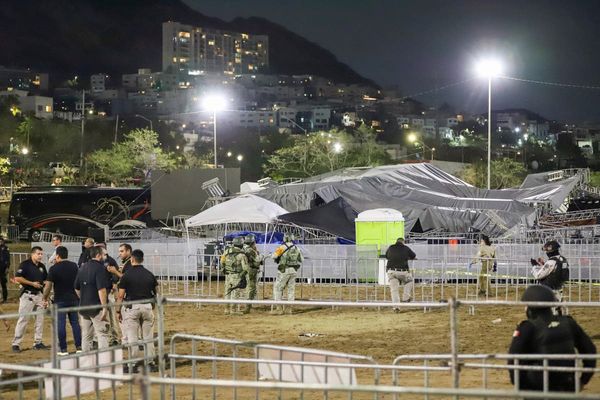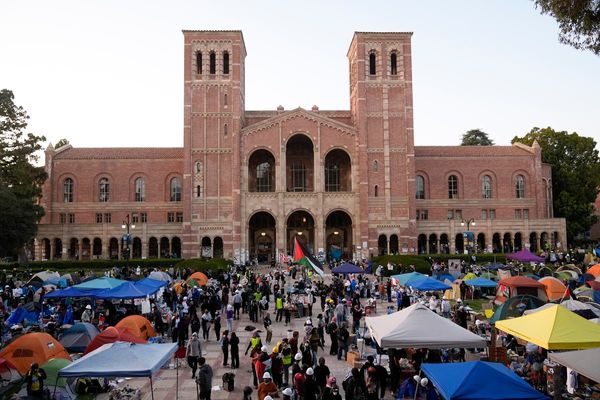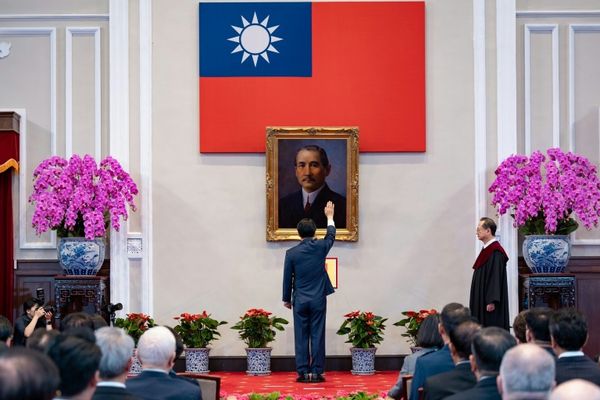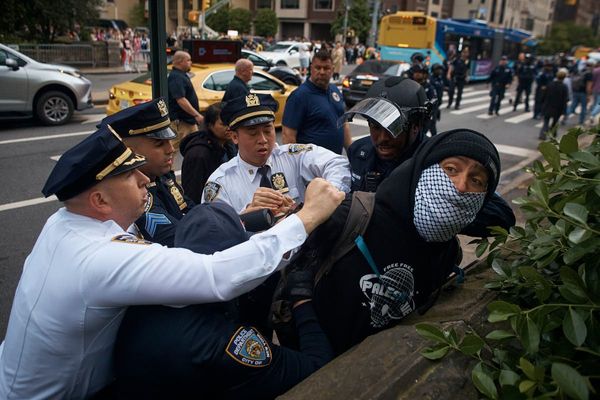The model code of conduct has, once again, attracted national attention because of its egregious violation by senior politicians during the election campaign for the 18th Lok Sabha. Political parties are duty bound to obey the code as it was framed by the Election Commission of India (ECI) on the basis of a consensus among all political parties in order to have a peaceful, orderly and civilised election. However, as elections in India are a no holds barred war, this consensus often breaks down with party leaders losing no opportunity to hit their opponents below the belt. Of late, elections are a free for all. Distortions, blatant falsehoods, mischievous misinterpretations, slanging matches — all are par for the course.
The Constitution mandates the ECI to conduct elections in a free and fair manner. In fact, free and fair elections are a part of the basic structure of the Constitution. Article 324 confers on the Election Commission, plenary powers to enable it to ensure a free and fair election. In Election Commission of India vs State of Tamil Nadu and Others (1993), the Supreme Court of India restates the role and powers of the Commission in the following words: “The ECI is a high constitutional authority charged with the function and the duty of ensuring free and fair elections and of the purity of the electoral process. It has all the incidental and ancillary powers to effectuate the constitutional objective and purpose. The plenitude of the Commission’s powers corresponds to the high constitutional functions it has to discharge.”
Key provisions
The model code of conduct was framed by the Commission to ensure that the elections are free and fair and the electoral process remains pure. Also, a level playing field is a necessary condition to ensure that elections are free and fair. The key provisions of the code are: no party or candidate shall indulge in any activity which may aggravate existing differences or create communal hatred or cause tension between different castes, communities — religious or linguistic; criticism of other political parties shall be confined to their policies and programs. No unverified allegations or distortions against other parties shall be allowed; there shall be no appeal to cast or communal feelings for securing votes; no party or its candidate shall indulge in corrupt practices or commit offences under the election law.
Needless to say that violation of these directions are serious infractions of the code, making it impossible to hold free and fair elections and maintain the purity of the electoral process. So, it is the duty of the ECI to quickly examine those violations and take suitable action against the violators so that the purity of the electoral process is maintained. Here a question arises as to what action the Commission can take in such cases.
On deterrent action
It is common knowledge that the model code of conduct is not legally enforceable. So, it is not possible to seek any relief from the court for violation of the code. The only way open to the aggrieved party is to complain to the Commission and seek its intervention. It must be noted here that neither The Representation of the People Act nor The Conduct of Election Rules makes any provision for the model code of conduct. However, the Election Symbols (Reservation and Allotment) Order brought out by the ECI in 1968 makes a provision to deal with the violation of the Model Code of Conduct. The Symbols order was issued in exercise of the powers conferred by Article 324. Paragraph 16A of the Symbols order says that in case of violation of the model code of conduct or other direction or orders of the Commission, it can suspend the recognition of a party, or, in an extreme case, even withdraw its recognition. Suspension or withdrawal of recognition of a party will deprive it of the symbol reserved for it. This will pose enormous problems to a recognised party as it will not be able to use its reserved symbol in the election. So, the ECI has the power to act decisively against the violators of the model code of conduct. We have seen the ECI taking violators off the election campaign for 24 to 48 hours. It can also take the violator off the campaign in the elections no matter how high he or she is in the party. Such actions by the ECI will definitely act as a deterrent and send the right message to the political parties.
However, experience shows that after the late T.N. Seshan, the ECI has never acted so decisively as he used to do. T.N. Seshan struck terror in the minds of politicians. Elections in India today are a do-or-die battle and the only aim here is to defeat the enemy. Political adversaries are treated as enemies and the goal is to exterminate them. Elections have long ceased to be the civilised democratic exercise they are meant to be, where each player scrupulously adheres to be norms set by law. Now, every effort is made to stir the basest passions in men. At one time there existed a consensus among politicians that nothing should be done to exacerbate the divisions in the society especially on the basis of religion.
We should not forget that religion in India is a potent tool which can be effectively used to divide society. The founding fathers of the Constitution wisely chose secularism and democracy as the warp and woof of the Constitution. They believed that only secularism can hold this country of immense diversities together. The Representation of People Act 1951, has made any appeal in the name of any religion a corrupt practice which will invalidate an election. Thus, religion is kept out of the electoral battle by the statute. But it is brought back and installed at the centre of this battlefield by politicians. The nation wants the ECI to address this issue with full seriousness.
A violation of oath
The issue of senior members of the Council of Ministers making communally charged speeches during the election campaign has not been dealt with sternly by the ECI or the courts. Speeches of such persons during the election campaign, which have extremely toxic references to the followers of a particular religion or community or caste and which can promote hatred in a section of voters, flagrantly violate the oath they have taken as Ministers. A Minister, through the oath he takes, gives a solemn assurance to the people of the country that he will do right to all manner of people without favour or ill will. By speaking directly or indirectly against a section of the society, they demonstrate their inherent bias and ill will against them which is a violation of oath. The Constitution or the election law does not prescribe any punishment for violating the oath by Ministers. Section 125 of the Representation of People Act 1951, provides for a three-year sentence as maximum punishment for promoting feelings of enmity or hatred between different classes of citizens on the ground of religion. Members of the Council of Ministers of the Union as well as the States are holding high constitutional office and are oath bound to do right to all without ill will towards anyone. Therefore, any utterances on their part to the contrary need to be seriously dealt with. The apex court can give a standing direction to the ECI to initiate criminal proceedings under Section 125 of the Representation of People Act 1951 whenever such occasion arises and also take the violators off the campaign till the ongoing elections are over.
The top court has always laid stress on maintaining the purity of an election. It says: “what is meant by purity of elections? According to us, it means that the elections should not only be free from corrupt practices but also free from evil practices” (A. Neelalohithadasan Nadar vs George Mascrene). Promoting hatred between two sections of people on the ground of religion , cast or community is an evil practice. The Constitution puts a lot of powers in the hands of the ECI. These powers are meant to be exercised when the need arises.
P.D.T. Achary is former Secretary General, Lok Sabha







